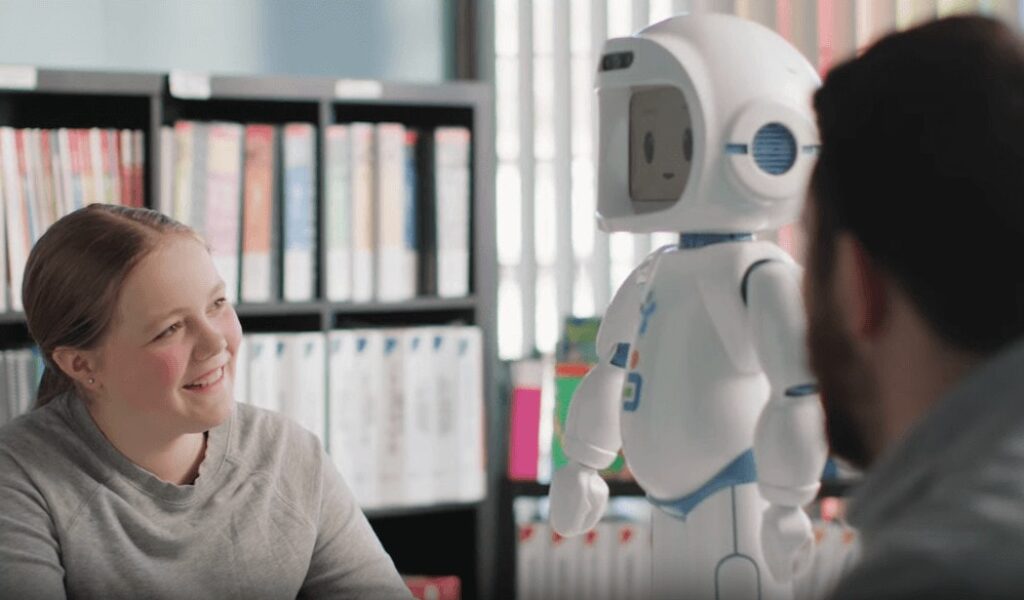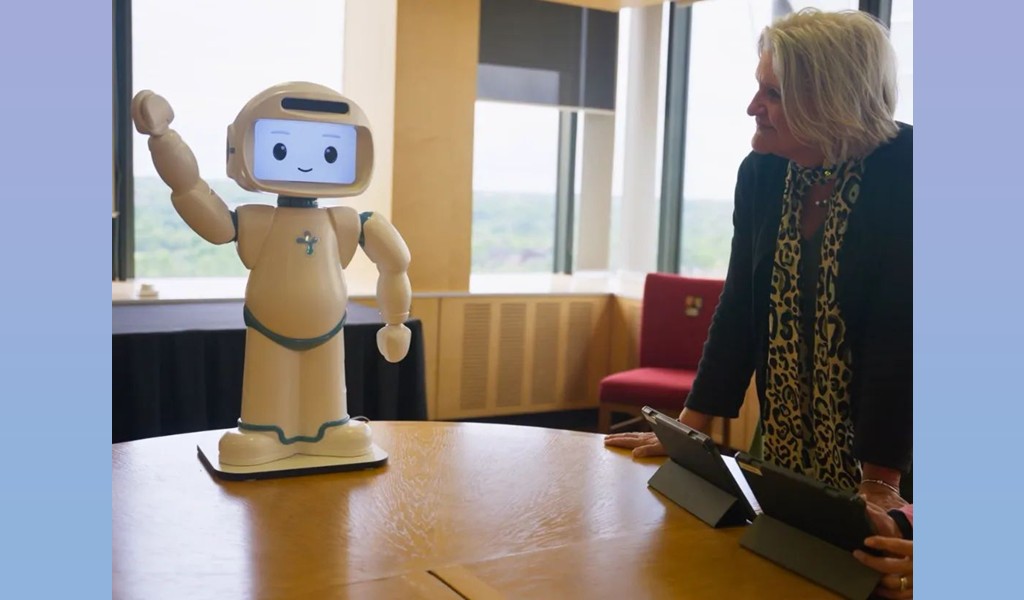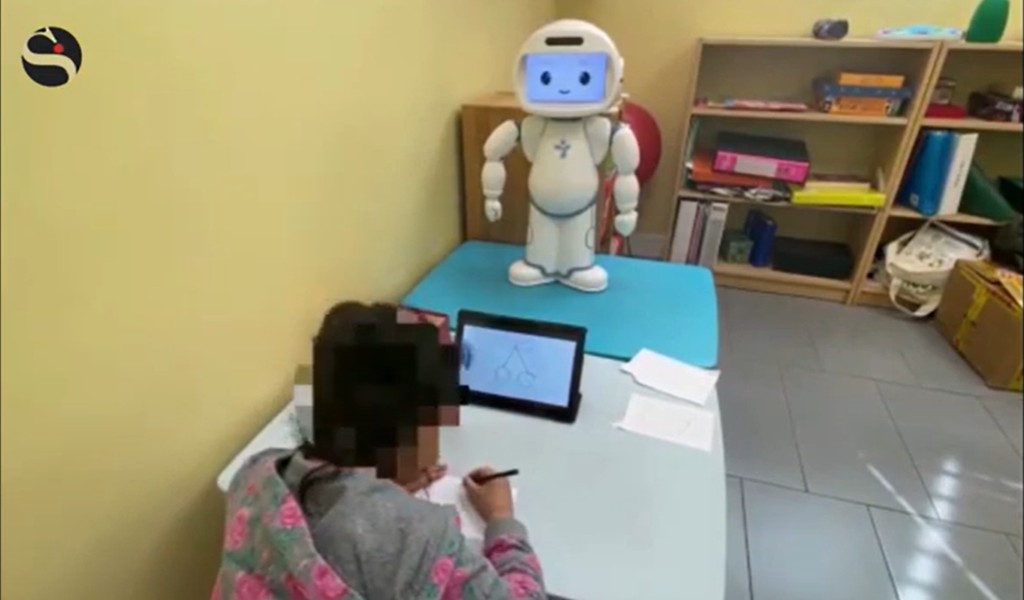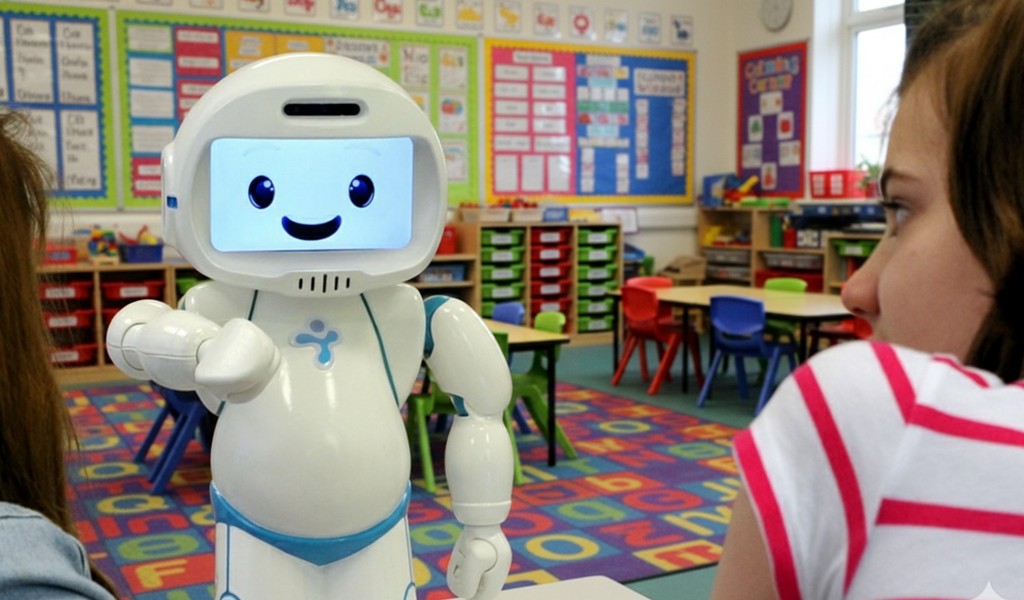Learning disabilities present a complex challenge in the educational sphere, affecting students’ abilities in language, reasoning, and mathematical skills. These students often struggle to maintain focus, exhibiting off-task behaviors that significantly impact their learning outcomes. Additionally, they necessitate specialized, individualized support tailored to their unique developmental needs.
Recognizing this, researchers from the University of Waterloo embarked on a study to explore the efficacy of robot-mediated instruction as a tool to bolster learning among children with learning disabilities. This research aimed to assess how the presence of a robot and its intervention strategies could enhance students’ focus and facilitate the achievement of learning goals.
Robot mediated instruction research questions and study design:
The study focused on two crucial questions: Can a social robot assist students in maintaining on-task behavior and achieving their educational goals? And, can it redirect students’ attention to the task when they become distracted?
The research methodology involved a comparative analysis of robot-mediated instruction outcomes against traditional interventions at the Learning Difficulty Institute. Participants included four instructors and nine students aged 7 to 15, grappling with various learning challenges such as ADHD, Autism, and developmental coordination disorder.
The Role of QTrobot in robot mediated instruction for learning disability
The QTrobot, a 60 cm humanoid robot equipped with the ability to display over 30 facial expressions and perform numerous gestures, served as an instructional tool.
Unlike conventional robot-mediated instructions conducted in controlled environments, this study utilized a real-life setting within the educational organization Learn, Develop, Succeed. Positioned on a table within a classroom, the QTrobot interacted with students through speech, gestures, and facial expressions, managed by instructors via a tablet application.
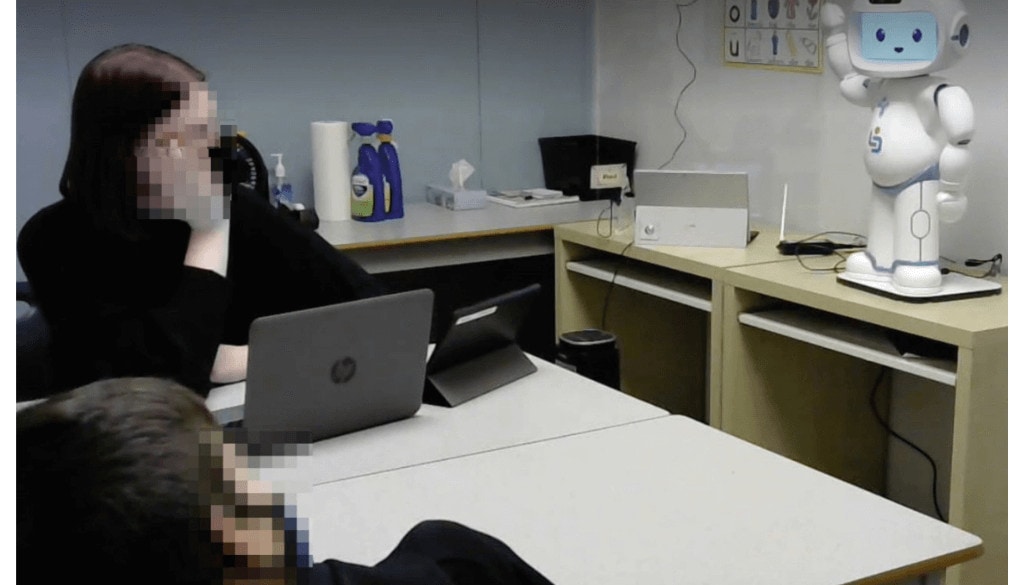
Impactful Outcomes of Robot-Mediated Sessions
The study revealed significant findings:
- On-Task Behaviors and Task Completion: Robot sessions saw an increase in students’ on-task behaviors and a higher goal completion rate (91%) compared to traditional intervention sessions (77%).
- Redirection of Students’ Attention: The robot effectively redirected students’ attention back to tasks, demonstrating its potential as a supportive tool in learning environments.
- Positive Perceptions: Both students and instructors reported favorable views of the QTrobot, with over 80% of instructors confirming that the robot met session objectives effectively.
Transforming Education for Students with Learning Disabilities
This research underscores the transformative potential of social robots, like QTrobot, in enhancing education for students with learning disabilities.
By integrating such robots into instructional programs, there’s a promising avenue for improving focus and learning outcomes, making a significant impact on special needs education.
